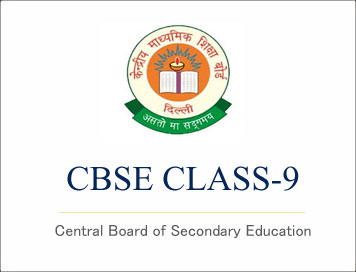CBSE Class-9 Syllabus 2019-20 (Social Science)
Disclaimer: This website is NOT associated with CBSE, for official website of CBSE visit - www.cbse.gov.in
CBSE Class-9 Syllabus 2019-20 (Social Science)
Rationale
Social Science is a compulsory subject up to secondary stage of school education. It is an integral component of general education because it helps the learners in understanding the environment in its totality and developing a broader perspective and an empirical, reasonable and humane outlook. This is of crucial importance because it helps them grow into well-informed and responsible citizens with necessary attributes and skills for being able to participate and contribute effectively in the process of development and nation-building.
The Social Science curriculum draws its content mainly from History, Geography, Political Science and Economics. Some elements of Sociology and Commerce are also included. Together they provide a comprehensive view of society over space and time, and in relation to each other. Each subject’s distinct methods of enquiry help the learners to understand society from different angles and form a holistic view.
Objectives
The main objectives of this syllabus are to:
- develop an understanding of the processes of change and development-both inof time and space, through which human societies have evolved
- make learners realise that the process of change is continuous and any event or phenomenon or issue cannot be viewed in isolation but in a wider context of time and space
- develop an understanding of contemporary India with its historical perspective, of the basic framework of the goals and policies of national development in independent India, and of the process of change with appropriate connections to world development
- deepen knowledge about and understanding of India’s freedom struggle and of the values and ideals that it represented, and to develop an appreciation of the contributions made by people of all sections and regions of the country
- help learners understand and cherish the values enshrined in the Indian Constitution and to prepare them for their roles and responsibilities as effective citizens of a democratic society
- deepen the knowledge and understanding of India’s environment in its totality, their interactive processes and effects on the future quality of people’s lives
- facilitate the learners to understand and appreciate the diversity in the land and people of the country with its underlying unity
- develop an appreciation of the richness and variety of India’s heritage-both natural and cultural and the need for its preservation
- promote an understanding of the issues and challenges of contemporary Indiaenvironmental, economic and social, as part of the development process
- help pupils acquire knowledge, skills and understanding to face the challenges of contemporary society as individuals and groups and learn the art of living a confident and stress-free life as well as participating effectively in the community
- develop scientific temperament by promoting the spirit of enquiry and following a rational and objective approach in analysing and evaluating data and information as well as views and interpretations
- develop academic and social skills such as critical thinking, communicating effectively both in visual and verbal forms - cooperating with others, taking initiatives and providing leadership in solving others’ problems
- develop qualities clustered around the personal, social, moral, national and spiritual values that make a person humane and socially effective.
COURSE STRUCTURE
CLASS IX
- Time: 3 Hrs.
- Max. Marks: 80
|
No. |
Units | Marks |
Periods |
| I | India and the Contemporary World - I | 20 |
60 |
| II | Contemporary India - I | 20 |
55 |
| III | Democratic Politics - I | 20 |
50 |
| IV | Economics | 20 |
50 |
| Total | 80 |
215 |
Click Here To Download Full Syllabus
Courtesy: CBSE
